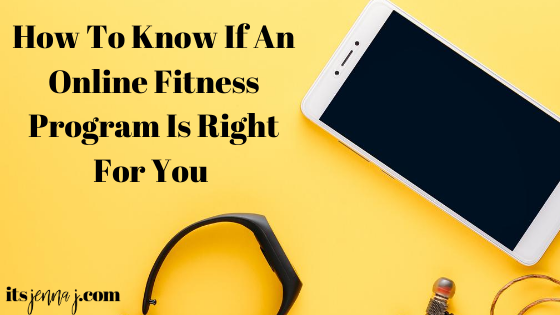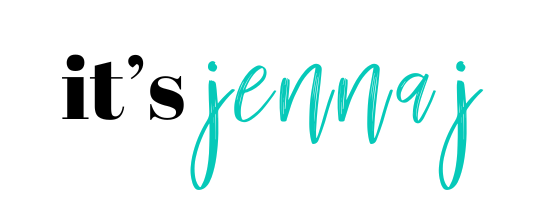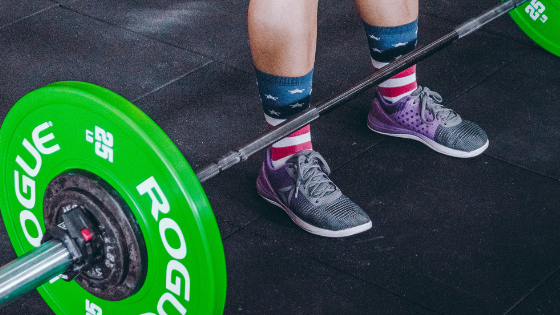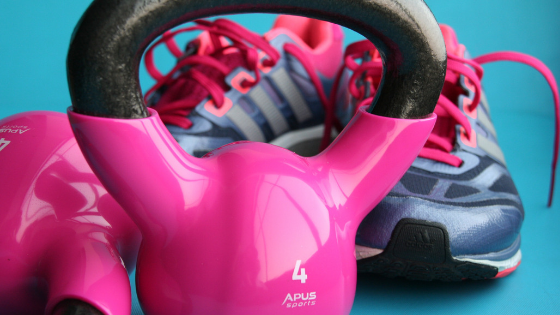How To Know If An Online Fitness Program Is Right For You
Earlier this week I turned away multiple new clients for my online fitness group coaching program. Yep. Literally turned away their money and referred them to other colleagues (competitiors?) of mine. You might be wondering why I would do such a thing, and here’s the truth:
When an online fitness program isn’t a good fit for you, it’s no fun for anyone.
You’re not gonna get anywhere as a client, and your coach will probably be equally frustrated worrying that you’re not enjoying it either. Online fitness programs are really taking off right now, especially due to the fact that in many parts of the world, it’s still not safe to physically go to the gym. And it can be easy to latch on to the first program you see because it seems like it might be good enough, because they have a pretty sales page, or the person running has nice abs or something.
The last thing you want to do is waste your time and money.
I’ve personally noticed that the times when I’m happiest in my work is when my online clients are putting in the work they set out to do, seeing success, learning, and growing. Even better when I see them developing solid relationships, not just with me, but with other members of our community.
So how to you know if this is going to be the case for you when you join a new program? How do you know it’s not just gonna be another thing you sign up for that sits in your inbox, unopened?
Here are a few questions to ask yourself before you enter your credit card info and add another online program to your collection.

1. Is the program customized or templated?
This is important, especially if you have specific physical needs, limitations, or are working with an injury. For example, I can absolutely create a custom program for a 1:1 client who is coming back from a knee injury and is nervous about squats and lunges. But my templated programs contain quite a bit of those things, so that person probably wouldn’t enjoy them very much.
2. If it’s a templated program, what sorts of things are included? What fitness level or skill set do you need to already have in place before you start?
A templated program could be a great option for you if you’re the ideal client for it. The coach should be able to tell you right away. For example, my group coaching program, Tough Love Strength Club is designed for people who aren’t new to working out, but wanna learn more about strength training and lifting weights. We focus mostly on kettlebell skills. So if you only want to do pilates and yoga it’s not for you. It’s also not the best fit for you if you’re trying to train for a powerlifting meet.
3. How much access do you get to the coach and what kinds?
Do you do the workouts on your own time or do you have to join in on online group classes? Can you email the coach? DM? Text? Is there a private Facebook group? Coaching calls? How often? Can you get form checks? This is all important and different for everyone. Make sure you’re getting the kinds of access you need to succeed!
4. How do you learn best, and does this program support your learning style?
Do you learn best by watching, listening, doing? When you do the program, will you have to watch videos? Read? Show up in person? Knowing how you learn best can help you figure out if you’re gonna actually follow through. For example, if you hate reading, but the program you wanna sign up for involves a 50 page ebook, it’s probably not the thing for you.
5. What kind of accountability do you need?
Do you need to have a physical appointment with your trainer in order to show up and do it? Or are you pretty self-motivated? Will the coach be checking in with you regularly? Or is that on you? If so, are you easily able to ask for help if you need it? In order to be successful, you have to set yourself up for success by stacking all the odds in your favor.
6. What is the program schedule like, and does it work with your schedule?
How many workouts are you expected to do per week? How long do they take? Is it ok if you have to skip sometimes? Are there coaching calls or live classes to attend and do the days and times work for you? Are there replays available if not?
7. What is the price and how does that work for your budget?
Believe it or not, something can be priced too high OR too low for you. If you think it’s too expensive it could be literally out of your budget. Or it could just be a sign that you don’t really value the thing being sold that that much. In either case, you should ask “How much do I need to be paying to take this seriously?” Have you ever blown off an online resource because it was free or super cheap? I know I have. Sometimes it can help to have a little skin in the game.
8. What kind of equipment is needed?
Do you have what you need? Are you willing to invest in it if not? Do you need to have a gym membership to make it work? If your gym is still closed and this program relies heavily on equipment you don’t have, what is that gonna look like for you? Make sure you budget that in too!
9. Is there a community component, and if so are the other participants the sorts of people you want to align yourself with?
If you’re gonna be interacting with other people, you might want to make sure they’re you’re kind of people. The other participants don’t have to be exactly the same as you for you to enjoy being in community with them, but you might want them to be the sorts of people who inspire you, share similar values and goals, are generally kind, and help you to grow. Only you know what those qualities look like to you.
10. Do you actually like the person leading the program?
One of the best parts about working with an online coach is building a relationship with them. I still have a friendly relationship with many of my former clients and love getting to know my current ones! In order to make the most of an online program, it’s important that you like and trust the person who is going to be coaching you. It’s a good idea to follow and consume their free content and interact with them online before making a commitment to their paid program. This will help you make sure that it’s a mutual good fit!
11. What kind of results does the program claim to give, and do those results match your goals?
While many online fitness programs assume that everyone has the same goal (usually fat loss), there are so many different reasons you might want to work out and so many different kinds of goals to set! Make sure you’re clear on yours and that the program you’re signing up for is designed to help you meet them.
12. Is the person running the program qualified to be doing so?
There are a lot of people on the internet with big followings who are doing things out of their scope of practice. So many, that it’s hard to tell what makes a person qualified. Look into it. Anyone can call themselves a “coach” without having much training. Having 10k followers and being sponsored by a protein powder company does not necessarily make a good coach. So before you hire someone, check and see: what kinds of certifications or education do they have? Beyond that, what is their experience? Do they have client testimonials to back it up?
Ask better questions before you sign up for your next online fitness program!
This will help you have the best experience possible, get the results you want, and hopefully meet some great new people along the way.
Wanna get better at push-ups? Whether you’re trying to get your first one without using your knees, training to beat the entire patriarchy in a push-up contest, or just create better memories around push-ups than 5th grade gym class gave you, this program will help get you there.








